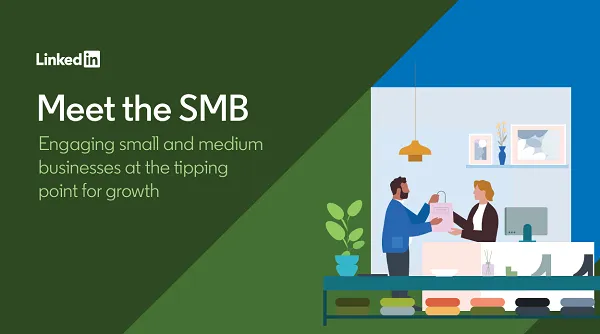5 best CRMs for ecommerce businesses in 2025
Managing customer relationships in ecommerce isn‘t just about collecting emails and tracking orders anymore. Modern ecommerce businesses need powerful CRM systems that can handle complex customer journeys, integrate with multiple sales channels, and provide actionable insights to drive growth.

Managing customer relationships in ecommerce isn‘t just about collecting emails and tracking orders anymore. Modern ecommerce businesses need powerful CRM systems that can handle complex customer journeys, integrate with multiple sales channels, and provide actionable insights to drive growth. And don’t just take our word for it, companies like Casio UK grew their ecommerce customers by 27% in a year after implementing HubSpot CRM solutions, proving that the right system can transform your business. Whether you're running a small online store or a large enterprise ecommerce operation, choosing the right CRM can make the difference between struggling with fragmented customer data and building lasting relationships that drive repeat sales. This comprehensive guide compares the top CRM solutions specifically designed for ecommerce businesses, complete with pricing, features, and real-world results. We‘ll cover everything from simple solutions perfect for startups to enterprise-grade platforms that can handle millions of transactions. Plus, you’ll discover how leading ecommerce brands are using these tools to increase conversions, improve customer lifetime value, and streamline their operations. Table of Contents An ecommerce CRM is a customer relationship management system specifically designed to handle the unique challenges of online retail. Unlike traditional CRMs, ecommerce CRMs like HubSpot integrate directly with online stores, payment processors, and marketing platforms to track customer behavior across multiple touchpoints. HubSpot's ecommerce CRM capabilities help businesses understand purchase patterns, automate follow-up campaigns, and personalize the shopping experience to increase customer lifetime value. CRM Best For Key Features Pricing HubSpot Growing ecommerce businesses Free CRM, marketing automation, sales pipeline management Free - $2,000+/month Salesforce Enterprise ecommerce operations Advanced customization, AI-powered insights, extensive integrations $25 - $325/user/month ActiveCampaign Small to medium ecommerce Marketing automation, email campaigns, behavioral tracking $15 - $259/month Pipedrive Sales-focused ecommerce teams Visual sales pipeline, deal management, activity tracking $14.90 - $99/user/month Zoho CRM Budget-conscious businesses Multi-channel support, inventory management, social media integration $12 - $52/user/month Choosing the right CRM for your ecommerce business requires understanding how each platform handles the unique demands of online retail. Here are the top solutions that have proven themselves with real ecommerce success stories. HubSpot is best for: Growing ecommerce businesses that want an all-in-one marketing, sales, and customer service platform with powerful automation capabilities. Learn more about HubSpot pricing. Best For: Large enterprise ecommerce operations requiring extensive customization and advanced AI-powered personalization. Best For: Small to medium ecommerce businesses seeking powerful marketing automation at an affordable price. Explore ActiveCampaign pricing. Best For: Ecommerce teams focused on sales pipeline management and deal tracking. Best For: Budget-conscious ecommerce businesses needing comprehensive CRM functionality with social media integration. Implementing the right CRM system can transform how your ecommerce business operates and grows. Here are the key benefits that make CRM essential for online retailers: Unified Customer Data Management: Instead of having customer information scattered across different platforms, HubSpot's CRM centralizes all interactions, purchase history, and preferences in one unified contact record. HubSpot's Smart CRM automatically enriches customer profiles with social media data, company information, and behavioral insights, providing a complete 360-degree view that enables personalized marketing and exceptional customer service. Automated Marketing Workflows: Casio's lead nurture programme generated nearly £900k using automated workflows, demonstrating the power of HubSpot's Marketing Hub automation capabilities. HubSpot's visual workflow builder allows you to create sophisticated automation sequences triggered by customer actions, dramatically increasing revenue while reducing manual work through intelligent lead scoring and personalized content delivery. Improved Customer Retention: By tracking customer behavior and purchase patterns through HubSpot's behavioral tracking tools, you can identify at-risk customers using HubSpot's predictive lead scoring and create targeted re-engagement campaigns through HubSpot's email automation. HubSpot's deal and product tracking features help you spot opportunities for upselling and cross-selling based on actual customer data and purchase history. Enhanced Sales Pipeline Management: HubSpot's Sales Hub allows you to track every potential sale from initial contact to completed purchase through customizable deal stages and pipeline management tools. HubSpot's reporting dashboard provides complete visibility into your sales process, helping identify bottlenecks and opportunities for improvement through detailed sales analytics and forecasting features. Data-Driven Decision Making: HubSpot's comprehensive analytics and reporting tools provide detailed insights showing which marketing campaigns work best, which products are most popular, and which customer segments are most profitable. HubSpot's custom reporting dashboard and attribution reporting guide strategic business decisions by connecting marketing activities directly to revenue outcomes and customer lifetime value metrics. When evaluating CRM options for your ecommerce business, prioritize these essential features that address the unique challenges of online retail: • Ecommerce Platform Integration – HubSpot provides seamless connection with your online store (Shopify, WooCommerce, Magento) to automatically sync customer and order data • Customer Segmentation – HubSpot's advanced segmentation tools allow you to group customers by purchase behavior, demographics, or engagement level for targeted marketing • Email Marketing Automation – HubSpot's built-in tools for creating and sending personalized email campaigns based on customer actions • Order and Inventory Tracking – HubSpot integrates with your fulfillment process to track orders and manage inventory levels • Analytics and Reporting – HubSpot delivers detailed insights into customer behavior, sales performance, and marketing campaign effectiveness Selecting the right CRM for your ecommerce business requires careful evaluation of your current needs and future growth plans. Follow these steps to make the best choice: Step 1: Map Your Current Workflows. Document how you currently handle customer interactions, from initial contact through post-purchase support. Identify pain points where manual processes slow you down or where customer data gets lost between systems. Step 2: Identify Must-Have Features. Based on your workflow analysis, create a list of essential features. Consider whether you need advanced automation, specific integrations, or particular reporting capabilities that are critical to your business operations. Step 3: Evaluate Integration Requirements. List all the tools your business currently uses (ecommerce platform, email marketing, accounting software, etc.) and ensure your chosen CRM can integrate with these systems to avoid data silos. Step 4: Consider Team Size and Scalability. Calculate the total cost of ownership including per-user fees, setup costs, and training time. Consider how pricing will scale as your business grows and adds more team members. Step 5: Choose a Flexible Platform – Like HubSpot. Look for a CRM that can grow with your business and adapt to changing needs. Brauer Natural Medicine increased their database by 325% with HubSpot because they chose a platform that could scale with their rapid growth while maintaining ease of use. HubSpot is widely considered the best CRM for ecommerce businesses because it offers a free tier with powerful features, native ecommerce integrations, and scales effectively as businesses grow. It combines marketing automation, sales pipeline management, and customer service in one platform, making it ideal for online retailers who need comprehensive functionality without complex setup. Essential features include ecommerce platform integration (Shopify, WooCommerce, etc.), abandoned cart recovery, customer segmentation, email marketing automation, order tracking, mobile access, and detailed analytics. HubSpot excels in all these areas, offering robust integrations with major ecommerce platforms and powerful automation tools that can handle your specific workflow needs while seamlessly connecting with your existing tech stack. Yes, HubSpot excels for ecommerce businesses of all sizes. CODE41 uses HubSpot to send 2.5 million emails per month to their community and credits the platform with enabling their rapid growth. HubSpot's ecommerce integrations, automation capabilities, and scalable pricing make it particularly well-suited for online retailers. CRM costs vary widely based on features and team size. HubSpot offers exceptional value with a free CRM tier that costs nothing and includes essential features, while HubSpot's paid plans start around $20 per user per month. Mid-tier HubSpot solutions range from $100-800 per month depending on your needs, and HubSpot's enterprise options provide advanced functionality with transparent pricing. Consider HubSpot's total cost of ownership, which includes free setup support, extensive training resources, and seamless integration capabilities. Most modern CRMs offer direct integrations with popular ecommerce platforms, and HubSpot leads the way with native integrations for Shopify, WooCommerce, Magento, and BigCommerce. HubSpot's integrations automatically sync customer data, order information, and product details between systems, eliminating manual data entry and ensuring platform consistency across your entire tech stack. After comparing all the leading CRM solutions, HubSpot emerges as the top choice for ecommerce businesses seeking growth, efficiency, and scalability. Here's why thousands of online retailers choose HubSpot to power their customer relationships: • All-in-one platform eliminates the need for multiple tools by combining CRM, marketing automation, sales pipeline management, and customer service • Free forever CRM with up to 1 million contacts lets you start building customer relationships immediately without upfront investment • Native ecommerce integrations seamlessly connect with Shopify, WooCommerce, Magento, and other platforms to automatically sync customer and order data The results speak for themselves. Casio achieved a 54% increase in web visits, 71% increase in new contacts, and 27% increase in customers using HubSpot's comprehensive platform. Meanwhile, Brauer Natural Medicine increased their website traffic from social media by 573% and transformed their digital marketing capabilities. CODE41 credits HubSpot with enabling their plan to grow their community to millions of people and hundreds of thousands of customers, calling it “a fantastic product” for lead nurturing and marketing automation. Ready to see how HubSpot can transform your ecommerce business? Get started with HubSpot's free CRM today and discover why it's the top choice for growing online retailers worldwide.What is a CRM for ecommerce?
Best CRMs for Ecommerce Businesses at a Glance
Best CRM Software for Ecommerce Businesses
1. HubSpot

Key HubSpot Features:
Free CRM with unlimited contacts – HubSpot's free CRM is perfect for startups to manage customer relationships without upfront costs
Ecommerce integrations – HubSpot's native Shopify, WooCommerce, and Magento connections for seamless data syncing
Marketing automation workflows – Casio‘s abandoned cart series generated nearly £800k in total revenue using HubSpot’s automated sequences
Advanced email marketing – HubSpot's email tools send personalized campaigns with detailed performance tracking and A/B testing
Sales pipeline management – HubSpot's visual deal tracking with automated lead scoring and follow-up reminders
Customer service tools – HubSpot's Service Hub provides integrated ticketing system, live chat, and knowledge base functionality
HubSpot Pricing:
Free Plan: CRM with basic marketing and sales tools for up to 2 users
Starter: $20/month for essential marketing, sales, and service features
Professional: $800/month with advanced automation and custom reporting
Enterprise: $2,000/month with AI-powered features and custom objects
2. Salesforce

Key Features:
AI-powered personalization – Einstein AI delivers product recommendations and predicts customer behavior
Omnichannel commerce – Unified customer experience across web, mobile, social, and physical stores
Advanced analytics – Deep insights into customer journeys and sales performance metrics
Extensive customization – Highly configurable platform with custom objects, fields, and workflows
B2B and B2C capabilities – Support for both business-to-business and consumer ecommerce models
Third-party integrations – Over 5,000 apps in the AppExchange marketplace
Pricing:
Essentials: $25/user/month for basic CRM and email integration
Professional: $80/user/month with advanced customization and API access
Enterprise: $165/user/month with advanced analytics and automation
Unlimited: $330/user/month with unlimited customization and premium support
3. ActiveCampaign

Key Features:
Visual automation builder – Create complex customer journeys with drag-and-drop simplicity
Ecommerce tracking – Monitor customer behavior and purchase patterns across your website
Predictive sending – AI determines optimal send times for each individual customer
Lead scoring – Automatically score leads based on engagement and behavior
CRM with deals – Track sales opportunities and manage customer relationships
Split testing – Test different campaigns to improve open rates and conversions
Pricing:
Lite: $15/month for basic email marketing and automation
Plus: $70/month with CRM, lead scoring, and advanced automation
Professional: $159/month with predictive sending and advanced reporting
Enterprise: $279/month with custom reporting and dedicated account manager
4. Pipedrive

Key Features:
Visual sales pipeline – Easy-to-understand pipeline view with drag-and-drop deal management
Activity reminders – Never miss a follow-up with automated activity scheduling
Email integration – Sync emails with Gmail and Outlook for complete communication history
Mobile app – Full CRM functionality on mobile devices for sales teams on the go
Custom fields – Tailor the CRM to track ecommerce-specific data points
Sales reporting – Performance dashboards and conversion metrics for sales optimization
Pricing:
Essential: $14.90/user/month with basic pipeline management
Advanced: $27.90/user/month with email sync and custom fields
Professional: $49.90/user/month with automation and advanced reporting
Power: $64.90/user/month with AI-powered insights and advanced integrations
5. Zoho CRM

Key Features:
Social media integration – Monitor and engage with customers across Facebook, Twitter, and Instagram
Inventory management – Track products, manage stock levels, and process orders
Multi-channel support – Email, phone, chat, and social media communication in one platform
Workflow automation – Automate routine tasks and customer communications
Custom dashboards – Create personalized views of sales metrics and customer data
Mobile CRM – Complete CRM functionality on iOS and Android devices
Pricing:
Standard: $12/user/month with basic CRM features and email integration
Professional: $20/user/month with automation and custom modules
Enterprise: $35/user/month with advanced analytics and custom functions
Ultimate: $52/user/month with advanced AI and enhanced security
Benefits of CRM Software for Ecommerce
5 Important Features for an Ecommerce CRM
How to Choose a CRM for Ecommerce (Step-by-Step)
Frequently Asked Questions
What is the best CRM for ecommerce businesses?
What features should I look for in an ecommerce CRM?
Is HubSpot good for ecommerce businesses?
How much does an ecommerce CRM cost?
Can I integrate my CRM with my ecommerce platform?
Meet HubSpot, the Top CRM Choice for Ecommerce Companies

 ValVades
ValVades 
































